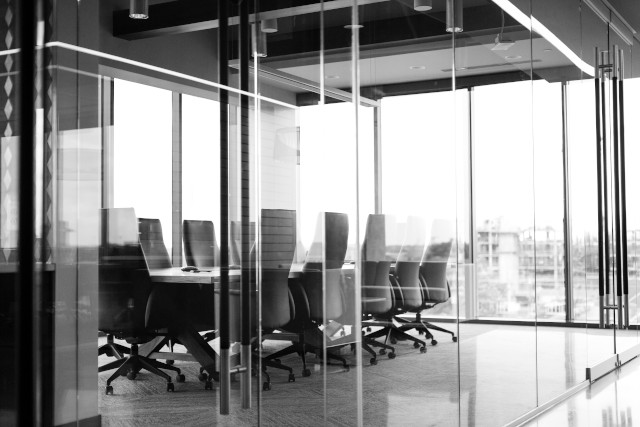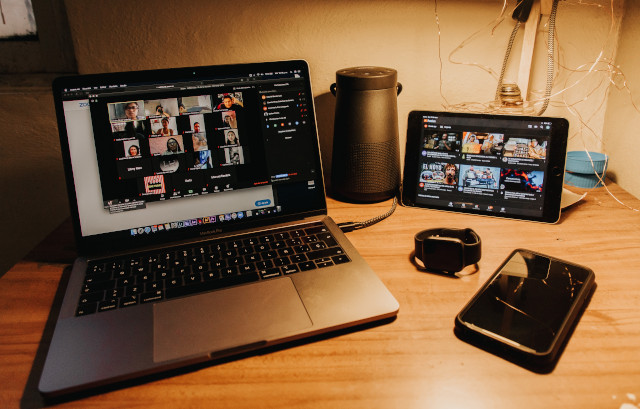
Photo by Markus Spiske on Unsplash
- Poorly Designed Curfews Are Wreaking Havoc on Cities
The problem stems in part from the litany of exceptions and caveats embedded within the curfew policy. Essential workers are allowed out past curfew as long as they are going from work to home. But they are allowed to stop at a deli for a meal. But then they have to go right home. Unless they need medical supplies, then they can get those too. Food delivery workers can also be out, as can media, but only if they’re working. If you’re stopped, there are “no specific requirements for ID.” It is, in short, up to whether the police officers believe you or not.
Plus, the guidance that “transportation infrastructure such as bus, rail, and yellow and green taxis will be operating normally” proved not to be the case. At Columbus Circle, Gothamist reporter Jake Offenhartz tweeted a photo of police in front of the subway entrance 13 minutes prior to curfew. “Uber and Lyft have been ordered shut at 8. Citi Bike and Revel are already deactivated in the neighborhood,” Offenhartz added, referring to the city’s bike and moped share systems. “When curfew hits in 10 minutes, how the hell are people supposed to get home???”
https://www.vice.com/en_us/article/qj4bv7/poorly-designed-curfews-are-wreaking-havoc-on-cities
DoorDash says it is ‘prepared to provide support’ for Caviar workers arrested in NYC during curfewOn-demand delivery workers are now caught between the protests and law enforcement, as on-demand apps like Caviar, DoorDash, and Uber Eats informed them that they could continue taking orders as essential workers in certain cities despite the curfew. In some locations, like San Francisco and Washington, DC, Uber and other apps ceased operations during curfew hours. But in New York City, the apps assured their contractors, many of whom rely on the apps for income during the pandemic and yet receive no other form of financial assistance, they could continue working.
“Our teams on the ground are working closely with cities on how to best support them based on their needs and the local situation,” an Uber spokesperson told BuzzFeed News earlier this week regarding its inconsistent approach to city curfews. “Some cities have requested that we suspend operations during curfew hours while others want to ensure Uber is available for essential services.”
- What should schools teach? Now is the moment to ask
- Google outlines plan to get some employees back to the office
Google will begin opening some of its office buildings in various cities starting on July 6, allowing a small amount of its employees who need a physical workspace “the opportunity to return on a limited, rotating basis.” The idea is to rotate employees in for a day every few weeks to keep facilities at only around 10% occupancy.
If all goes well in its initial efforts, Google will scale that 10% up to 30% around September “which would mean most people who want to come in could do so on a limited basis, while still prioritizing those who need to come in,” according to Pichai.
https://techcrunch.com/2020/05/26/google-campuses-reopening-covid-19/
Google’s work from home strategy includes a $1,000 allowanceAs a result the company is providing a $1,000 allowance to staff to help them buy computers, office furniture and other equipment needed for remote work. While that might not cover everything, it should ease the burden for workers who don’t have everything they need.
https://www.engadget.com/google-work-from-home-allowance-221701178.html
- Why Does Zoom Exhaust You? Science Has an Answer
Zoom and other video-conference services present many communication pitfalls—an inability to read body language, faces that move into different spots on the screen, a chat feature to accommodate side comments and transmission delays that hinder turn-taking. “You are always making a judgment about how much to speak and when it’s appropriate,” says Steve Harrison, associate professor at Virginia Tech and director of its Human-Centered Design Program.
With so little non-verbal and real-time feedback, it’s difficult to tell if people on the other end of the video line are with you. “Ask a question and there’s silence. You feel like you’re talking to empty air,” says Keeley Sorokti, director of knowledge sharing at the Chicago-based nonprofit Ounce of Prevention Fund.
Another source of stress, researchers have found, is that a mirror or video camera trained on study subjects causes them to see themselves the way they think others do. “When you look in a mirror, what you tend to see is your objective self,” says Amy Gonzales, assistant professor at UC Santa Barbara who studies media and identity. “I guess my nose is kind of big. Maybe I do need some wrinkle cream.” Zoom says it offers a control to block the mirror image.
https://www.wsj.com/articles/why-does-zoom-exhaust-you-science-has-an-answer-11590600269





